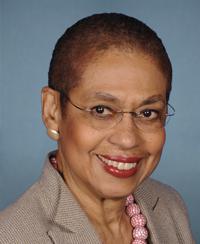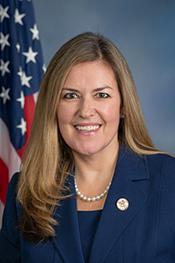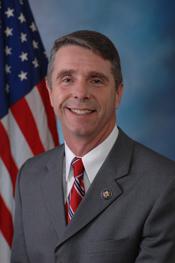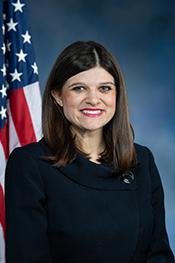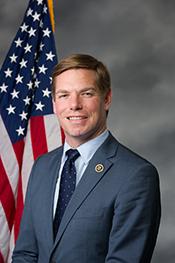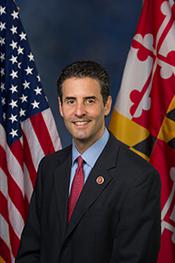0
0
0
National Children's Museum Act
3/9/2023, 5:47 PM
Summary of Bill HR 1703
Bill 117 HR 1703, also known as the National Children's Museum Act, is a piece of legislation introduced in the United States Congress. The purpose of this bill is to establish a National Children's Museum in Washington, D.C. The museum would serve as a cultural and educational institution dedicated to providing interactive exhibits and programs for children of all ages.
The National Children's Museum Act outlines the funding and organization of the museum, as well as its mission to promote learning and creativity among young people. The bill also specifies that the museum will be overseen by a board of directors, who will be responsible for its operation and management.
Supporters of the National Children's Museum Act argue that such a museum would provide a valuable resource for children and families, offering a unique and engaging learning experience. They believe that the museum would help to inspire curiosity and creativity in young people, and promote a greater understanding of the world around them. Opponents of the bill may argue that the establishment of a National Children's Museum is not a priority for government funding, and that resources could be better allocated to other educational initiatives. They may also raise concerns about the cost of building and maintaining the museum, and question whether it would truly benefit children in the long run. Overall, the National Children's Museum Act is a proposal to create a new cultural and educational institution in Washington, D.C. that would cater specifically to the needs and interests of children. The bill is currently being considered by Congress, and its fate will ultimately be decided by lawmakers in the coming months.
The National Children's Museum Act outlines the funding and organization of the museum, as well as its mission to promote learning and creativity among young people. The bill also specifies that the museum will be overseen by a board of directors, who will be responsible for its operation and management.
Supporters of the National Children's Museum Act argue that such a museum would provide a valuable resource for children and families, offering a unique and engaging learning experience. They believe that the museum would help to inspire curiosity and creativity in young people, and promote a greater understanding of the world around them. Opponents of the bill may argue that the establishment of a National Children's Museum is not a priority for government funding, and that resources could be better allocated to other educational initiatives. They may also raise concerns about the cost of building and maintaining the museum, and question whether it would truly benefit children in the long run. Overall, the National Children's Museum Act is a proposal to create a new cultural and educational institution in Washington, D.C. that would cater specifically to the needs and interests of children. The bill is currently being considered by Congress, and its fate will ultimately be decided by lawmakers in the coming months.
Congressional Summary of HR 1703
National Children's Museum Act
This bill requires the General Services Administration (GSA) to cover the rent of the National Children's Museum for the duration of the museum's current building lease, including renewals. The GSA must use specified funds for such expenses.
Read the Full Bill
Current Status of Bill HR 1703
Bill HR 1703 is currently in the status of Introduced to Senate since June 16, 2021. Bill HR 1703 was introduced during Congress 117 and was introduced to the House on March 9, 2021. Bill HR 1703's most recent activity was Received in the Senate. as of June 16, 2021
Bipartisan Support of Bill HR 1703
Total Number of Sponsors
1Democrat Sponsors
1Republican Sponsors
0Unaffiliated Sponsors
0Total Number of Cosponsors
32Democrat Cosponsors
24Republican Cosponsors
8Unaffiliated Cosponsors
0Policy Area and Potential Impact of Bill HR 1703
Primary Policy Focus
Government Operations and PoliticsPotential Impact Areas
- Business records
- Congressional oversight
- District of Columbia
- Government buildings, facilities, and property
- Museums, exhibitions, cultural centers
- Public-private cooperation
- Tax-exempt organizations
Alternate Title(s) of Bill HR 1703
National Children's Museum Act
To amend title 40, United States Code, to require the Administrator of General Services to enter into a cooperative agreement with the National Children's Museum to provide the National Children's Museum rental space without charge in the Ronald Reagan Building and International Trade Center, and for other purposes.
National Children’s Museum Act
National Children’s Museum Act
National Children’s Museum Act
National Children's Museum Act
Comments
Sponsors and Cosponsors of HR 1703
Latest Bills
National Defense Authorization Act for Fiscal Year 2026
Bill S 1071December 13, 2025
Enduring Justice for Victims of Trafficking Act
Bill S 2584December 13, 2025
Technical Corrections to the Northwestern New Mexico Rural Water Projects Act, Taos Pueblo Indian Water Rights Settlement Act, and Aamodt Litigation Settlement Act
Bill S 640December 13, 2025
Incentivizing New Ventures and Economic Strength Through Capital Formation Act of 2025
Bill HR 3383December 13, 2025
BOWOW Act of 2025
Bill HR 4638December 13, 2025
Northern Mariana Islands Small Business Access Act
Bill HR 3496December 13, 2025
Wildfire Risk Evaluation Act
Bill HR 3924December 13, 2025
Energy Choice Act
Bill HR 3699December 13, 2025
ESTUARIES Act
Bill HR 3962December 13, 2025
Improving Interagency Coordination for Pipeline Reviews Act
Bill HR 3668December 13, 2025
National Children’s Museum Act
Bill S 830March 8, 2023
Providing for consideration of the bill (H.R. 256) to repeal the Authorization for Use of Military Force Against Iraq Resolution of 2002; providing for consideration of the bill (H.R. 1187) to provide for disclosure of additional material information about public companies and establish a Sustainable Finance Advisory Committee, and for other purposes; and for other purposes.
Bill HRES 473March 8, 2023
